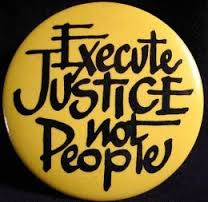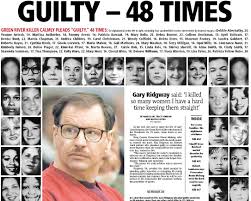 State execution of convicted criminals is a hotly-debated, life-and-death social issue. The subject of capital punishment pushes more emotional buttons than practical ones.
State execution of convicted criminals is a hotly-debated, life-and-death social issue. The subject of capital punishment pushes more emotional buttons than practical ones.
There’s a host of heated arguments to back up each camp’s position.
 The Pros put forward justice, retribution, deterrence, cost-saving, and closure to victims as reasons to carry out the death penalty. The Cons defer to moral, religious, legal, unfair application, and danger of mistake as grounds not to kill condemned prisoners.
The Pros put forward justice, retribution, deterrence, cost-saving, and closure to victims as reasons to carry out the death penalty. The Cons defer to moral, religious, legal, unfair application, and danger of mistake as grounds not to kill condemned prisoners.
So who’s right?
Both, if you listen to the emotional pleas.
But set aside all the teeth-gnashing and hair-tearing and look at the practical benefits of having death penalty legislation.
 It goes without saying that punishment must fit the crime and execution must be reserved for the most despicable of criminals such as child-rapists, serial-killers, and mass-murderers. Some jurisdictions retain the right to execute lesser felons like mutineers, traitors, and spies, however it’s sensible that only exceptionally dangerous people, for whom there’s no chance of rehabilitation, or that their crimes are so horrific that there’s no other just punishment, be executed. Serial killer Theodore (Ted) Bundy is a prime example as well as the terrorists behind the 911 bombings.
It goes without saying that punishment must fit the crime and execution must be reserved for the most despicable of criminals such as child-rapists, serial-killers, and mass-murderers. Some jurisdictions retain the right to execute lesser felons like mutineers, traitors, and spies, however it’s sensible that only exceptionally dangerous people, for whom there’s no chance of rehabilitation, or that their crimes are so horrific that there’s no other just punishment, be executed. Serial killer Theodore (Ted) Bundy is a prime example as well as the terrorists behind the 911 bombings.
There are only two unshakable reasons for the state having and enforcing the power to execute a convicted murderer.
First, it’s an indisputable fact that execution guarantees that person will never re-offend.
 Yes, the counter argument suggests that locking an inmate up for life with no possibility of parole achieves the same end, but it’s not the same thing. There are many cases where a dangerous criminal has escaped or found a legal means to roam free and kill again.Once a killer is dead, that’s the end of their threat to society. Period.
Yes, the counter argument suggests that locking an inmate up for life with no possibility of parole achieves the same end, but it’s not the same thing. There are many cases where a dangerous criminal has escaped or found a legal means to roam free and kill again.Once a killer is dead, that’s the end of their threat to society. Period.
There’s a second practical application of death penalty legislation that few people in the general public think about, but which police officers and prosecutors know to be valid.
 Capital punishment is an effective, persuasive tool in forcing caught killers to co-operate with authorities. Plea-bargains are done with accused murderers where the death penalty is waived in exchange for information. This leads to solving other homicides, recovering bodies, giving closure to victimized families, and studying the minds of these monsters in order to understand and prevent future miscreants. The save-his-life deal with Seattle’s Green River Killer, Gary Ridgeway, paid off big.
Capital punishment is an effective, persuasive tool in forcing caught killers to co-operate with authorities. Plea-bargains are done with accused murderers where the death penalty is waived in exchange for information. This leads to solving other homicides, recovering bodies, giving closure to victimized families, and studying the minds of these monsters in order to understand and prevent future miscreants. The save-his-life deal with Seattle’s Green River Killer, Gary Ridgeway, paid off big.
